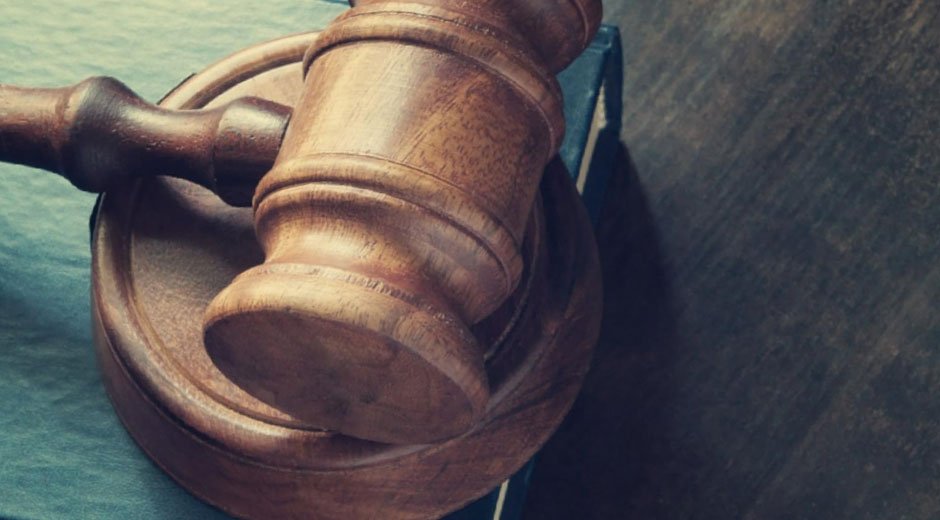What happens if someone else’s mistake causes you harm?
Personal injury law helps protect people who get hurt because of someone else’s actions. It covers car accidents, slips and falls, medical mistakes, and more. The goal is to help victims get fair compensation for their injuries. This can include money for medical bills, lost wages, and pain and suffering.
Understanding the basics can help you know your rights and what steps to take. Whether it’s a minor injury or something serious, knowing the law can make a big difference.
Let’s explore how personal injury claims work and why they matter.
Contents
- 1 Personal Injury Covers Many Cases
- 2 Negligence Is Key to Claims
- 3 Compensation Varies by Case
- 4 Time Limits for Filing
- 5 Insurance Plays a Big Role
- 6 Evidence Helps Your Case
- 7 Laws Differ by State
- 8 Most Cases Settle Out
- 9 Lawyers Can Help You
- 10 Compensation Isn’t Always Money
- 11 Some Cases Take Years
- 12 Not All Claims Win
- 13 The Road to Justice and Recovery
Personal Injury Covers Many Cases
Personal injury law applies to many situations. It includes car accidents, workplace injuries, medical mistakes, and more. If someone else causes harm, the victim may have a claim.
Slips and falls are common personal injury cases. If a store does not clean a spill and a person falls, the store may be responsible. Unsafe conditions can lead to serious injuries.
Medical errors also fall under personal injury law. If a doctor makes a mistake that harms a patient, the patient may file a claim. These cases can be complex and need strong evidence.
Dog bites, defective products, and wrongful death are also covered. If a company sells a dangerous product that injures people, they can be held responsible. Personal injury law helps protect victims in many different situations.
Negligence Is Key to Claims
Negligence in personal injury cases means someone did not act responsibly. If their actions cause harm, they may be held accountable. Proving negligence is a key part of winning a case.
There are four parts of negligence. First, the person must have had a duty to act safely. Second, they must have failed in that duty. Third, their failure must have caused harm. Finally, the harm must have led to real damage.
For example, a driver must follow traffic laws. If they run a red light and hit someone, they may be negligent. Their actions caused an accident and led to injuries.
Negligence is not always clear. Sometimes, both parties share blame. Even if a victim is partly responsible, they may still get compensation. Each case is different, and laws depend on the location.
Compensation Varies by Case
The amount of money a victim gets depends on the case. Some injuries cost more to treat than others. Courts look at medical bills, lost wages, and pain when deciding compensation.
Medical bills are a big factor. If an injury requires surgery or long-term care, the victim may get more money. Severe injuries often lead to higher payments.
Lost wages also affect compensation. If someone cannot work because of an injury, they may get money for lost income. This helps them cover expenses while they recover.
Pain and suffering are harder to measure. Courts consider how much the injury affects daily life. If a person can no longer enjoy activities they once did, they may get more money.
Time Limits for Filing
Personal injury cases must be filed within a certain time. This is called the statute of limitations. The time limit depends on the location and type of case.
In some places, victims have only a few years to file a claim. If they wait too long, they may lose their right to compensation. It is important to check the rules for each case.
Some exceptions may apply. If an injury is not discovered right away, the time limit may start later. This happens with medical mistakes that take time to show.
Missing the deadline can end a case before it starts. Victims should act quickly to protect their rights. A lawyer can help them file on time.
Insurance Plays a Big Role
Insurance companies handle many personal injury claims. They may offer settlements to avoid court. Victims often deal with insurance adjusters after an accident.
Insurance companies want to pay as little as possible. They may offer a low settlement at first. Victims should be careful before accepting any offer.
Some policies have limits on how much they will pay. If damages are higher than the policy allows, the victim may need to sue. In some cases, multiple insurance policies may apply.
A lawyer can help with insurance negotiations. They can fight for a fair settlement. If the insurance company refuses to pay enough, the case may go to court.
Evidence Helps Your Case
Strong evidence can make a big difference in a personal injury case. It helps prove what happened and who is at fault. Good evidence can lead to a better settlement.
Photos and videos are useful. Taking pictures of injuries, damaged property, and the accident scene can support a claim. These images help show what happened.
Witnesses can also help. If someone saw the accident, their statement can be used in court. Medical records are also important. They show the extent of injuries and the treatment needed.
Keeping records of lost wages and other expenses is also helpful. The more evidence a victim has, the stronger their case will be. Good documentation increases the chances of fair compensation.
Laws Differ by State
Personal injury laws are not the same everywhere. Each state has its own rules and deadlines. This can affect how a case moves forward.
Some states have caps on damages. This means there is a limit on how much money a victim can get. Other states allow for higher payouts depending on the injury.
Fault rules also vary. Some states follow comparative negligence, where both parties share blame. Others use contributory negligence, where any fault can stop a claim.
Knowing the laws in your state is important. A lawyer can explain the rules and help you understand your options.
Most Cases Settle Out
Most personal injury cases do not go to court. Instead, they end in a settlement. This happens when both sides agree on a payment amount.
Settlements are faster and less costly than trials. They allow victims to get money without waiting years. Insurance companies often prefer to settle to avoid legal fees.
A lawyer can negotiate a fair settlement. They can make sure victims do not accept less than they deserve. If an offer is too low, they can push for more.
If both sides cannot agree, the case may go to trial. This is rare but can happen if the victim wants a better outcome.
Lawyers Can Help You
A lawyer can make the legal process easier. They understand personal injury laws and how to handle claims. Their help can improve a victim’s chances of success.
Lawyers gather evidence and talk to witnesses. They also handle paperwork and deal with insurance companies. This allows victims to focus on healing.
Many personal injury lawyers work on contingency. This means they only get paid if the case wins. Victims do not have to pay upfront fees.
Having a lawyer can lead to better compensation. They know how to negotiate and fight for fair settlements. If needed, they can take a case to court.
Compensation Isn’t Always Money
Not all personal injury settlements involve money. Some victims receive other forms of compensation. This depends on the case and the type of injury.
Medical care is a common form of compensation. Some settlements cover future treatments, therapy, or rehabilitation. This helps victims heal without worrying about costs.
Job benefits may also be included. If an injury affects a person’s ability to work, they may get job training. Some employers offer modified duties or other work arrangements.
Other cases involve policy changes. If a company’s actions caused harm, they may have to change their safety rules. This helps prevent future injuries for others.
Some Cases Take Years
Personal injury cases do not always end quickly. Some take months or even years to resolve. The length of a case depends on many factors.
Serious injuries can extend a case. If a victim needs long-term treatment, the case may take longer. Courts want to see the full impact of the injury before deciding on compensation.
Disputes between both sides can slow things down. If the insurance company refuses to settle, the case may go to trial. Trials take longer than settlements.
Legal processes also add time. Gathering evidence, filing paperwork, and scheduling hearings can take months. A lawyer can help speed things up and keep the case moving forward.
Not All Claims Win
Not every personal injury claim is successful. Many cases get denied due to lack of evidence. A weak claim may not prove fault or damages.
Some claims fail because of missed deadlines. If a victim waits too long, they may lose their right to sue. Each state has its own time limit for filing cases.
In some cases, the other party may not be fully responsible. If the victim shares too much blame, they may not receive compensation. Some states do not allow claims if the victim was partly at fault.
A lawyer can help build a stronger case. They gather evidence and handle legal issues. This improves the chances of winning a claim.
The Road to Justice and Recovery
Personal injury law helps people who suffer harm because of others. It covers many situations, from accidents to unsafe conditions. Victims may get compensation for medical costs, lost wages, and other damages.
Understanding personal injury law can help people make smart choices. Knowing rights and legal options is important. Seeking advice from a lawyer can make the process easier and less stressful.
For more helpful blog posts like this one, visit the rest of our site!








